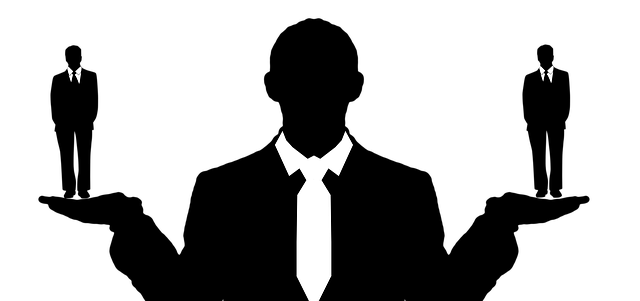

Navigating mental health and addiction treatment options can be overwhelming, especially when considering the variety of programs available. The debate of php vs iop is central to understanding these options. Two common choices are Partial Hospitalization Programs (PHP) and Intensive Outpatient Programs (IOP).
Understanding the differences between these two treatment modalities is essential for making an informed decision about which program aligns best with an individual’s needs. By exploring these treatment types in detail, individuals can gain clarity on which option might provide the best path forward for their unique circumstances.

A Partial Hospitalization Program (PHP) is a structured and intensive treatment program designed for individuals facing significant mental health or addiction challenges. PHP bridges the gap between residential care and traditional outpatient therapy, providing a high level of support while allowing participants to return home at the end of each treatment day.
Key aspects of PHP include:
Frequency: Sessions are typically held 5-7 days a week, ensuring consistent support.
Duration: Each session lasts 4-6 hours, allowing for in-depth therapeutic engagement.
Focus: Comprehensive care, including therapy sessions, medication management, and medical and psychiatric care, designed to stabilize and support recovery.
PHPs are ideal for those who require significant support but do not need 24/7 supervision. This level of care is often recommended for individuals stepping down from inpatient treatment or those whose symptoms are severe but manageable in a structured daytime setting.
An Intensive Outpatient Program (IOP) provides focused mental health treatment for individuals managing mental health or addiction issues. It is designed to help participants maintain their responsibilities, such as work, school, or family obligations, while engaging in a structured recovery process.
Key aspects of IOP include:
Frequency: Sessions occur 3-5 days a week, providing regular but less intensive support compared to PHP.
Duration: Each session lasts 2-4 hours, balancing treatment with personal obligations.
Focus: Skill-building, therapeutic interventions, and support tailored to individual recovery needs.
IOPs are suited for individuals who need flexible treatment that can fit into their daily lives while still offering robust therapeutic support. It is a common choice for those transitioning out of PHP or seeking early-stage intervention for moderate symptoms.

PHP:
Offers a higher level of supervision and frequent medical oversight, ensuring safety and accountability.
Includes frequent medical check-ins, medication management, and a multidisciplinary team approach.
Features a structured daily schedule, promoting consistency and progress.
IOP:
Provides less frequent medical oversight, focusing on therapeutic interventions and skill-building.
Allows for more flexibility in scheduling, accommodating personal and professional responsibilities.
Encourages participants to apply learned skills in their daily lives between sessions.
PHP:
Typically more expensive due to the comprehensive care and extended daily sessions provided.
May require additional insurance coverage or out-of-pocket expenses, depending on the provider and location.
IOP:
Often more affordable and widely covered by insurance policies.
Offers a cost-effective alternative to higher levels of care without compromising quality.
Costs for both programs vary depending on factors such as location, services offered, and program specifics. Understanding insurance coverage and available financial assistance options is crucial when choosing a program.
Both PHP and IOP programs incorporate individual and group therapy sessions to address mental health and addiction challenges. These therapies form the foundation of treatment and are tailored to meet participants’ specific needs.
Group therapy: Provides a supportive environment for sharing experiences, building connections, and learning from peers. It fosters a sense of community and accountability.
Individual therapy: Offers one-on-one guidance from trained therapists to address personal challenges, set goals, and develop tailored coping strategies.
Behavioral therapies are central to PHP and IOP programs, often including:
Cognitive-Behavioral Therapy (CBT): Helps individuals identify and change negative thought patterns and behaviors that contribute to their struggles.
Dialectical Behavior Therapy (DBT): Focuses on emotional regulation, distress tolerance, and interpersonal effectiveness, providing tools for navigating difficult situations.
These therapies are frequently combined with medication management, psychoeducation, and other treatment modalities to provide a comprehensive approach to recovery.

PHP: Suitable for those requiring significant mental health support, close monitoring, and frequent supervision. It is particularly beneficial for individuals with acute symptoms that require consistent oversight.
IOP: Best for individuals who need less intensive treatment and greater flexibility, allowing them to maintain daily responsibilities while working on recovery.
PHP: Highly structured with daily sessions and consistent medical check-ins, ensuring participants stay on track.
IOP: Offers a more flexible schedule with fewer sessions, empowering individuals to balance treatment with other aspects of their lives.
Provide a high level of care and supervision, making them suitable for individuals with severe mental health or addiction issues.
Include comprehensive treatment approaches such as therapy, medication management, and behavioral therapies to address complex needs.
Serve as a step-down from residential treatment programs or a step-up from traditional outpatient programs, bridging gaps in the continuum of care.
Offer flexibility to accommodate personal responsibilities like work or school, making treatment accessible for individuals with demanding schedules.
Focus on developing skills and strategies for long-term recovery, empowering participants to navigate challenges effectively.
Provide a safe and supportive environment through group therapy, fostering a sense of belonging and encouragement.
Both PHP and IOP programs are effective in improving mental health and addiction outcomes. Research shows:
PHPs: Excel in treating severe mental health or addiction issues, providing the intensive care needed for significant progress.
IOPs: Are highly effective for individuals with moderate challenges, offering structured support without overwhelming daily routines.
Regular participation, commitment to treatment, and access to ongoing support play a vital role in achieving positive outcomes in both programs.
Both PHP and IOP programs have demonstrated success in helping individuals achieve and maintain sobriety. Research has shown that PHP programs can lead to reduced substance use, improved psychological well-being, and increased chances of long-term recovery. IOP programs have also been effective in reducing substance use, improving social functioning, and increasing retention in treatment.
A study published in the Journal of Substance Abuse Treatment found that individuals who participated in a PHP program had a higher rate of abstinence from substance use at 6-month follow-up compared to those who received standard outpatient treatment. Another study published in the Journal of Addiction Medicine found that IOP programs were effective in reducing symptoms of depression and anxiety in individuals with co-occurring mental health conditions.
PHP: Requires a significant time commitment, making it less suitable for those with demanding personal responsibilities or limited flexibility.
IOP: Provides the opportunity to balance treatment with work, school, or family obligations, ensuring recovery fits into daily life.
PHP: Ideal for individuals needing comprehensive care, supervision, and a structured environment to address complex issues.
IOP: Suitable for those seeking less intensive treatment with room for personal scheduling and application of learned skills.
Maintaining progress after completing a PHP or IOP is crucial. Aftercare services often include:
Individual counseling to address ongoing challenges and reinforce coping strategies.
Group therapy sessions to maintain a sense of community and accountability.
Support group meetings to provide encouragement and shared experiences from others in recovery.
These services help individuals sustain recovery, prevent relapse, and achieve long-term success.
Transitioning from a PHP program to an IOP program is a common step in the recovery journey. PHP programs provide a higher level of intensity and support, which can be beneficial for individuals who require more structure and supervision. However, as individuals progress in their recovery, they may find that they need less intensive support and can benefit from the more flexible schedule of an IOP program. IOP programs provide ongoing support and therapy, but with less frequent medical oversight.
This can be a good option for individuals who have made significant progress in their recovery and are ready to take on more responsibility for their care. When moving from a PHP to an IOP program, it’s essential to work closely with a treatment team to ensure a smooth transition and to address any concerns or challenges that may arise.
Most PHP and IOP programs are covered by insurance, though coverage levels vary. Tips for navigating coverage include:
Check with your insurance provider to understand benefits and coverage specifics.
Ask about sliding scale fees or financing options if needed to make treatment more accessible.
Ensuring clarity on financial commitments can ease the process of seeking the right care.
Choosing the right treatment program is a critical step toward recovery. By understanding the differences between PHP and IOP and considering factors like personal circumstances, treatment goals, and required level of support, individuals can find the program that best meets their needs. Both PHP and IOP offer valuable paths to recovery, each tailored to different levels of intensity and flexibility. With the right care and commitment, recovery is not just possible—it is achievable.
Finding the right treatment program can be a daunting task, especially for individuals who are new to the recovery process. It’s essential to consider several factors, including the severity of addiction, previous treatment experience, and the presence of co-occurring mental health conditions. PHP and IOP programs offer different levels of intensity and support, and it’s crucial to choose a program that aligns with an individual’s unique needs.
Consulting with addiction professionals can help individuals assess their needs and make an informed decision. Additionally, considering personal circumstances, such as work obligations and family responsibilities, can also influence the choice between PHP and IOP. Ultimately, the right treatment program is one that provides the necessary support and structure to help individuals achieve and maintain sobriety.

At Sullivan Recovery, as an in-network provider we work with most insurance plans, such as:
And More
If you or a loved one are struggling with mental health challenges or substance abuse, reach out to Sullivan Recovery today. Our team of compassionate professionals is here to support your journey towards lasting well-being. Give us a call at 949-836-7180.
PHP (Partial Hospitalization Program) and IOP (Intensive Outpatient Program) differ in the level of care and intensity. PHP provides a higher level of care, including frequent medical oversight and structured daily sessions lasting 4-6 hours, typically 5-7 days a week. IOP offers more flexibility, with 2-4 hour sessions 3-5 days a week, focusing on skill-building and therapeutic interventions for those with moderate mental health or addiction challenges.
No, a PHP is more intensive than standard outpatient treatment. While outpatient programs involve less frequent and shorter therapy sessions, PHP provides comprehensive care, including therapy sessions, medication management, and frequent medical check-ins. PHP is ideal for individuals needing a higher level of support than traditional outpatient treatment offers.
IOP is suited for individuals who require structured support but have the stability to manage their daily responsibilities, such as work, school, or family obligations. It’s a great option for those stepping down from a PHP or residential treatment program or those starting treatment for moderate mental health or addiction issues.
Most insurance plans cover PHP and IOP programs, but the extent of coverage varies. It’s important to check with your insurance provider to understand the specifics of your plan. Many treatment facilities also offer sliding scale fees or financing options to make care more accessible.